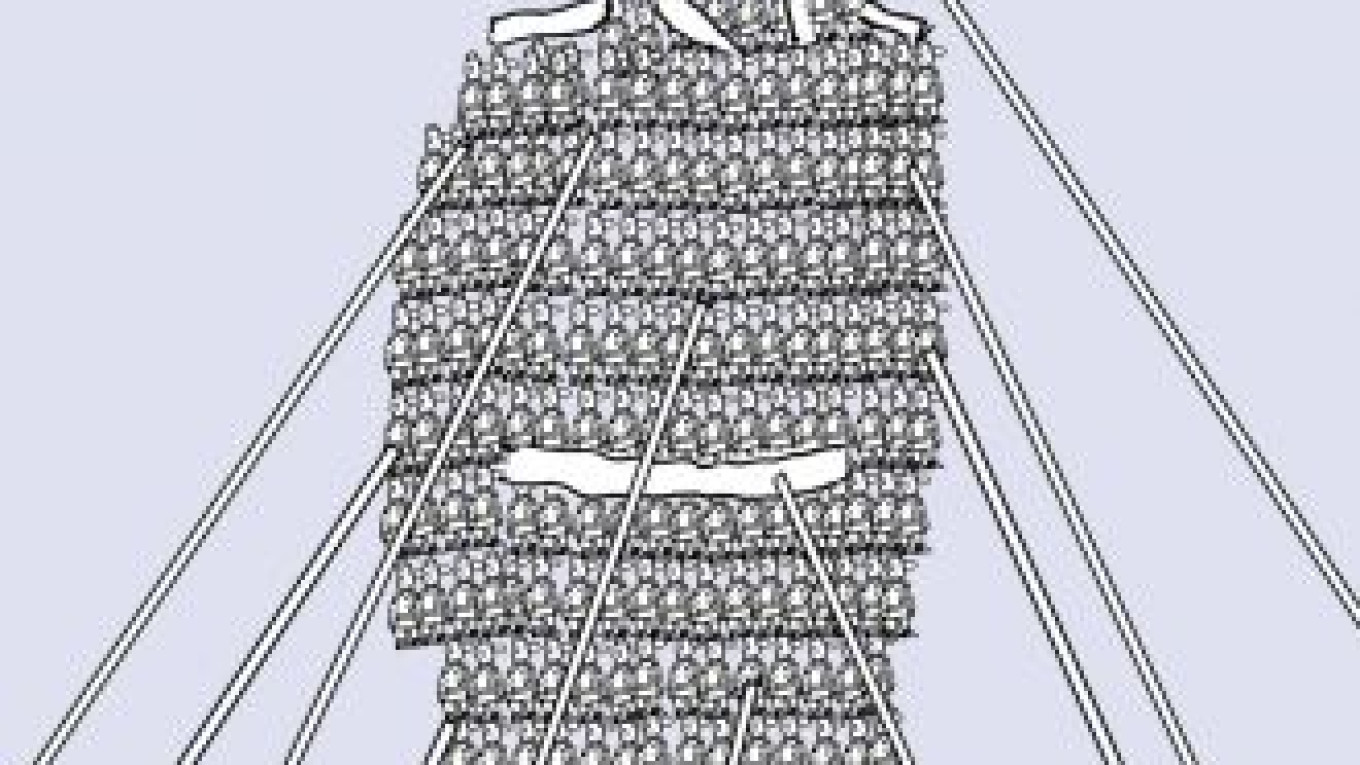In Russian fairy tales, the main character always succeeds in achieving his goal on the third attempt. The reality of Russian life, however, is such that three tries rarely do the trick.
In summing up the Vostok 2010 military exercises, which the Navy’s Northern, Black Sea and Pacific fleets completed in Siberia and the Far East military districts on July 8, head of the General Staff Nikolai Makarov announced important changes in the management of the armed forces. The general said President Dmitry Medvedev signed an order creating four strategic commands with the goal of implementing joint operation capabilities among the military branches. The decree is apparently a secret because there is no mention of it on the presidential web site. The reason for this may be linked to the stubborn opposition to joint operations from the heads of the branches — something that has dogged the military for decades.
The Russia-Georgia war in August 2008 showed Russia’s fundamental inability to coordinate military actions among the ground forces, Navy and Air Force. As is so often the case, the country’s right hand didn’t know what its left hand was doing. Joint operations, a basic requirement of any armed forces, remain out of reach for Russia.
The push for implementing joint operation capabilities is nothing new. As far back as the early 1980s, then-head of the General Staff Marshal Nikolai Ogarkov initiated the creation of the Western and Eastern commands. It was already clear that it would become necessary at some point to conduct joint operations in which ground forces, Navy and Air Force would operate under a unified leadership. In order for such operations to be successful, all military training would also have to be carried out under a unified command. But Ogarkov’s ideas ran up against powerful opposition within the armed forces, since none of the branches wanted to give up its independence to a unified command structure. The same turf wars over lines of command were fought throughout much of the 1990s.
In 2006, in another attempt to implement a unified command and joint operations, then-head of the General Staff Yury Baluyevsky proposed to his Defense Ministry colleagues that, in place of six military districts and four fleets, three regional commands be created — Western, Far Eastern and Central Asian. But he too ran up against tough opposition from military district chiefs and chiefs of the main branches whose authority would have been severely curtailed if they were forced to answer to a higher body. Baluyevsky made reassuring statements to the effect that the creation of regional commands would not eliminate district and top command structures and that the innovation would not be carried out until 2011 to 2015 — that is, long after all of the generals and Defense Ministry top brass would have retired. But even after taking those steps, Baluyevsky’s program was stopped in its tracks.
The three previous attempts to combine the branches under one command structure were unsuccessful. The reasons for the failures were due not only to bureaucratic resistance, but to the fact that the military districts were preserved as independent units — an organizational and reporting formation that hasn’t been modified in 150 years.
? Russia will never be able to implement joint operation capabilities as long as the military leadership remains devoted to the concept of a conscription-based, mass-mobilization army. Joint operations require a smaller, highly professional contract army.
It is true that a Soviet-style military organization based on mass mobilization is completely ineffective, costly and incapable of addressing Russia’s 21st-century security threats. It can only be rebuilt by starting with the foundation itself — that is, with the basic principle of how the armed forces are organized. Whether they like it or not, reformers will have to build a new foundation if they want to modernize the army.
Alexander Golts is deputy editor of the online newspaper Yezhednevny Zhurnal.
A Message from The Moscow Times:
Dear readers,
We are facing unprecedented challenges. Russia's Prosecutor General's Office has designated The Moscow Times as an "undesirable" organization, criminalizing our work and putting our staff at risk of prosecution. This follows our earlier unjust labeling as a "foreign agent."
These actions are direct attempts to silence independent journalism in Russia. The authorities claim our work "discredits the decisions of the Russian leadership." We see things differently: we strive to provide accurate, unbiased reporting on Russia.
We, the journalists of The Moscow Times, refuse to be silenced. But to continue our work, we need your help.
Your support, no matter how small, makes a world of difference. If you can, please support us monthly starting from just $2. It's quick to set up, and every contribution makes a significant impact.
By supporting The Moscow Times, you're defending open, independent journalism in the face of repression. Thank you for standing with us.
Remind me later.


